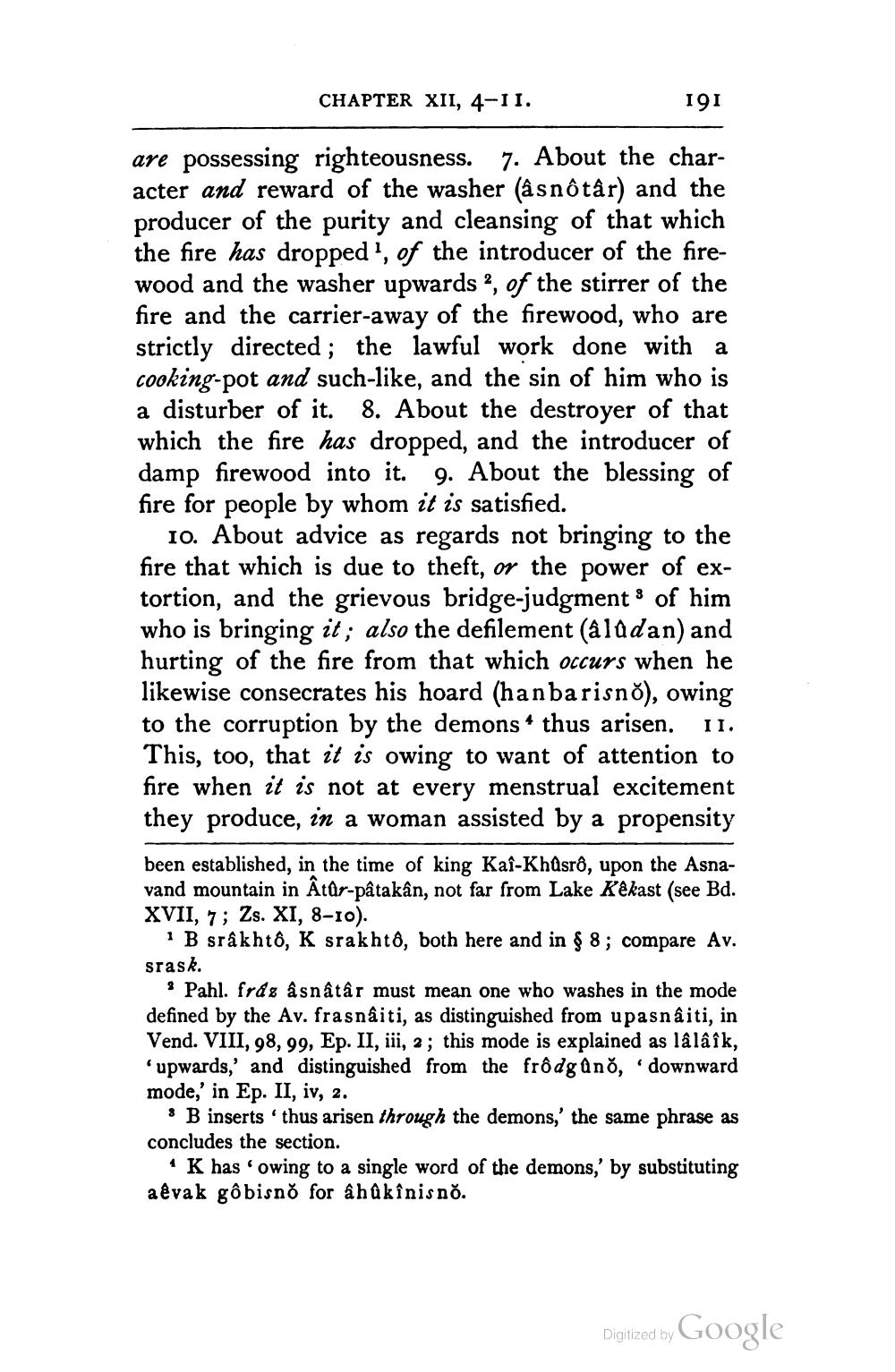________________
CHAPTER XII, 4-11.
191
are possessing righteousness. 7. About the character and reward of the washer (âsnôtâr) and the producer of the purity and cleansing of that which the fire has dropped', of the introducer of the firewood and the washer upwards 2, of the stirrer of the fire and the carrier-away of the firewood, who are strictly directed; the lawful work done with a cooking-pot and such-like, and the sin of him who is a disturber of it. 8. About the destroyer of that which the fire has dropped, and the introducer of damp firewood into it. 9. About the blessing of fire for people by whom it is satisfied.
10. About advice as regards not bringing to the fire that which is due to theft, or the power of extortion, and the grievous bridge-judgments of him who is bringing it; also the defilement (âladan) and hurting of the fire from that which occurs when he likewise consecrates his hoard (hanbarisno), owing to the corruption by the demons' thus arisen. 11. This, too, that it is owing to want of attention to fire when it is not at every menstrual excitement they produce, in a woman assisted by a propensity
been established, in the time of king Kaî-Khasrô, upon the Asnavand mountain in Atūr-pâtakân, not far from Lake K'êkast (see Bd. XVII, 7; Zs. XI, 8-10).
i B sråkhtô, K srakhtô, both here and in 8 8; compare Av. srask.
* Pahl. frás âsnâtâr must mean one who washes in the mode defined by the Av. frasnaiti, as distinguished from upasnaiti, in Vend. VIII, 98, 99, Ep. II, iii, 2; this mode is explained as lâlâîk,
upwards,' and distinguished from the frôdgano, downward mode,' in Ep. II, iv, 2.
• B inserts 'thus arisen through the demons,' the same phrase as concludes the section.
K has owing to a single word of the demons,' by substituting a êvak gô bisno for å hûkînis no.
Digitized by Google




